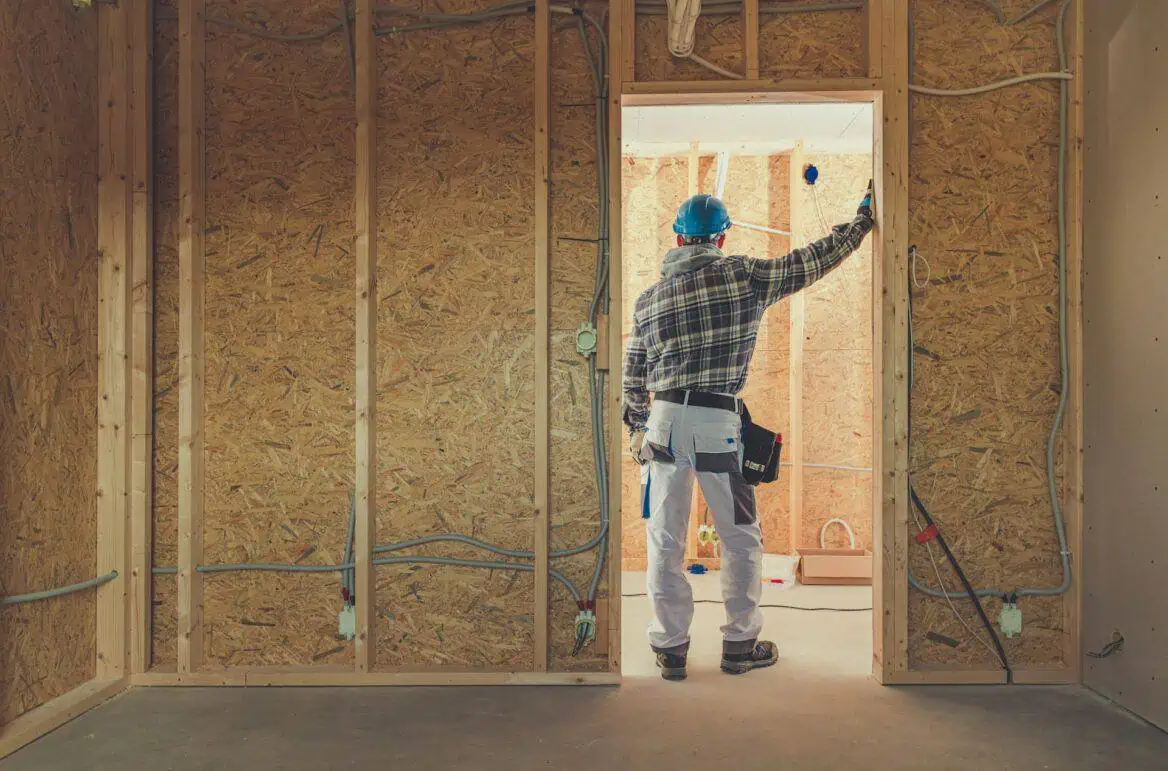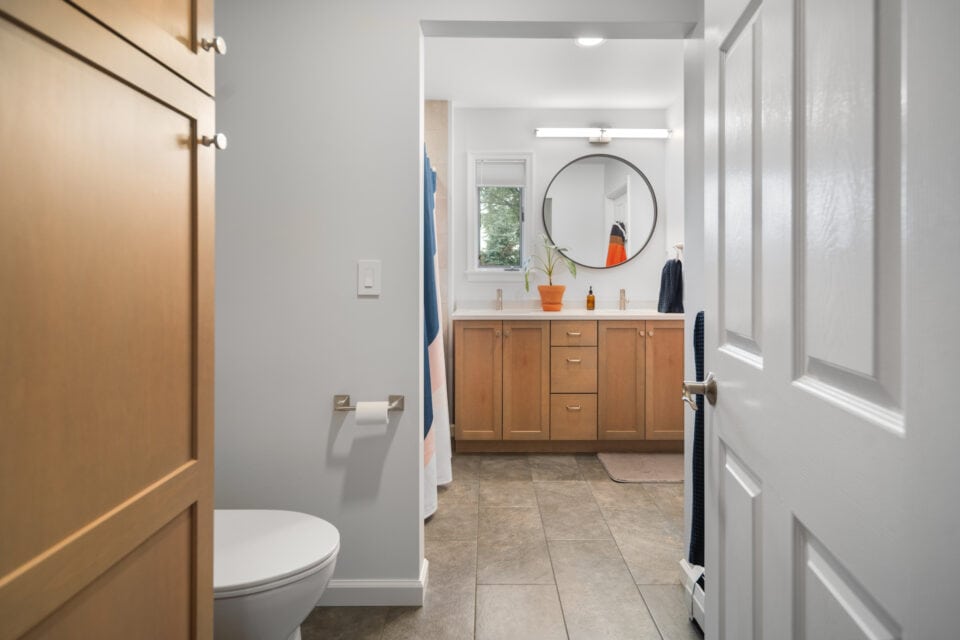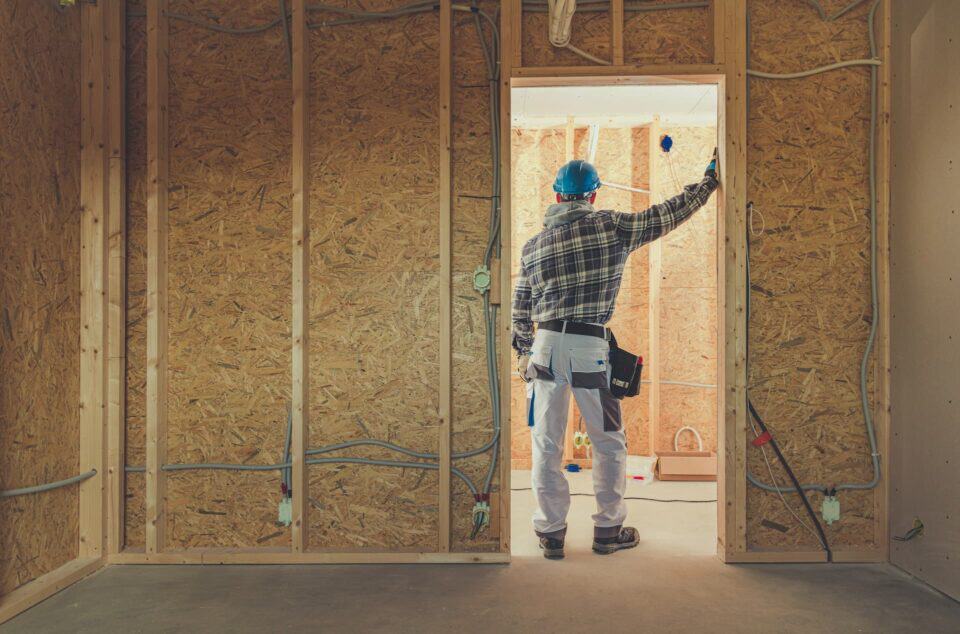In this article, I want to explain the nuances that separate these two roles. I aim to clarify their respective responsibilities and how choosing one over the other can influence both your experience during the renovation process and the outcome of your home remodeling project.
Understanding the Basics: General Contractor vs. Remodeler
At its core, the primary distinction between a general contractor and a remodeler lies in the scope of their projects. It is important to know the fundamental differences between the two professions when it comes to planning your building project.
What Does a General Contractor Do?
A general contractor is a versatile professional responsible for the day-to-day handling of a wide range of construction projects, including new construction, commercial buildings, and vendor management. General contractors usually bid on a set of plans and then assemble a team of subcontractors and craftspeople to execute the build. The GC is a hired gun, of sorts, who handles the day-to-day project management and problem-solving of an active construction site. Some general contractors pick up a hammer and handle some aspect of the construction themselves, like the finish carpentry, but a GC need not be involved in the physical labor of a project.
Just like the name suggests, general contractors have a broad skillset and can take on a wide range of building projects. However, many GCs specialize in a particular type of project, like new home construction, commercial tenant improvements, or even something as specific as building low-rise apartment buildings for developers.
What Does a Remodeler Do?
A remodeler specializes specifically in transforming existing homes through renovations, focusing on rejuvenating and improving the quality of preexisting spaces rather than creating new ones. Due to the specialized nature of the profession, a remodeler usually possesses such skills as:
- Design Insight: Understanding of interior design and layout.
- Precision Work: Focused attention to detail and finishing.
- Artisan Craftsmanship: High-quality, skilled handiwork.
- Creative Customization: Ability to tailor projects to specific tastes and needs.
- Efficient Execution: Streamlined process for smaller-scale projects.
- Aesthetic Sensibility: Keen eye for style and visual appeal.
- Specialized Expertise: Knowledge in specific areas like kitchens, bathrooms, or custom cabinetry.
Can a General Contractor Tackle a Home Remodeling Project?
Yes, general contractors can undertake home remodeling projects, but their suitability largely depends on the project’s scope and complexity. While many GCs are adept at managing large-scale construction projects and extensive renovations, their approach may differ from specialized remodelers who focus on detailed, smaller-scale home improvements. A general contractor can specialize in remodeling, but often remodeling is offered to homeowners as more of a full-service package. I’ll explain more about that below in the Design Build Remodeling section.

Who Is More Qualified: A General Contractor or a Remodeler?
At this point, you may be thinking that general contractors are probably more skilled than remodelers since they sometimes handle bigger-ticket projects and can build a home from scratch. On the contrary, remodeling can actually be the more specialized field. One analogy from the world of medicine would be to compare the broad knowledge of a general practitioner to the specialized knowledge of a neurosurgeon. Both have a broad base of medical knowledge, but the surgeon has spent extra time learning a very particular set of skills.
Of course, when it comes to actual skill levels for contracting and remodeling, there aren’t as many barriers to entry as there are in medicine. That’s why when comparing the various skill levels of any professional working on your home, you should check references, study reviews, and ask about professional certifications, such as the Certified Graduate Remodeler designation given by the National Association of Home Builders.
The Unique Challenges of Home Renovation Calls for a Specific Set of Skills
Remodeling an existing space often presents more challenges compared to new construction. While building from scratch allows for a blank canvas, remodeling requires navigating pre-existing conditions, which can be complex and unpredictable. The process involves adapting to the limitations and idiosyncrasies of the existing structure, often leading to creative problem-solving and meticulous planning. Unlike new construction projects, where plans can be executed with fewer constraints, remodelers must carefully assess and work within the confines of what already exists, balancing the desire for modern updates with the realities of the existing home.
5 Reasons Why Remodeling Can Be More Challenging Than New Construction
- Space Constraints: Working within the limits of existing floor plans.
- Unexpected Issues: Discovering hidden problems like outdated wiring or plumbing.
- Integration: Seamlessly blending new additions with the existing home, both structurally and aesthetically.
- Regulatory Compliance: Adhering to building codes, which may have changed since the original construction.
- Preservation: Maintaining the integrity and character of the original home while updating.
Can I Stay in My Home During a Remodel?
The answer is yes, you can often stay in your home during a remodel, but there are caveats. You have to be prepared for some disruption to your daily routine–noise, dust, or your kitchen being out of commission during construction.
Choosing a specialized remodeler over a general contractor might help minimize these disruptions, and it should be one of the primary ways you evaluate who you might hire for the job.
The hallmark of a skilled remodeler lies in their adeptness at minimizing disruptions to the homeowner’s daily life. This includes implementing strategies to control dust, noise, and ensuring the safety and comfort of the residents during the renovation process. A general contractor who is more accustomed to new construction may not have processes in place to keep your home livable during the building phase.

Let’s Talk About Design
So far, I’ve just been writing about the construction phase of a remodeling project and who is best suited to do this work. But before I go any further, I want to mention design, which is an important part of any major remodel and must happen before any construction begins.
Who Should Design My Remodel?
To be clear, someone needs to design your remodel. Even if you’ve watched hours of Property Brothers on HGTV and know exactly how you want your new space to look, it would be irresponsible to start a major remodeling project without building plans. You will need to enlist the services of a professional. You have two main options:
- Architect: These accredited professionals focus almost exclusively on design and are well-versed on building codes and requirements. Architects produce some of the most cutting-edge building designs and are responsible for drafting plans for large commercial buildings. However, the majority of residential projects–both new construction and remodels–are not designed by architects.
- Designers: Much of the actual residential design work out there is done by non-architect designers, sometimes in collaboration with structural engineers if the project involves major structural changes. There are a variety of subspecialties, like interior designers and architectural designers, but you will likely want to utilize the services of a designer for your home remodel.
What Happens Once I Have My Plans?
Traditionally, after you hire a designer or an architect to draw up your building plans, you would shop them around to general contractors and get bids. You would go through a vetting process and then decide on “the one” and sign a contract.
A Different Approach: Design-Build Remodeling
Instead of hiring a standalone architect or designer, you can consider the design-build approach.
A subset of remodelers, known as design-build remodelers, go beyond the traditional scope of their role by offering design services. This comprehensive approach brings design and construction under one roof and has the unique advantage of streamlining communication, potentially lowering overall project costs, and making it crystal clear who is accountable for the success of the project. In contrast, a general contractor typically works with pre-existing plans and focuses more on project management than design.
So Who Do I Choose: A General Contractor or a Remodeler?
There is no right answer. It all depends on your project and your needs and, to some degree, where you are in the process. If you already have building plans, you will probably want to shop them around to get bids from contractors. If your project involves a major addition and resembles a new construction project, you can probably get by with hiring a general contractor who has done some residential work. If, on the other hand, you are updating spaces within your home and plan to live there while the work is done, you would likely benefit from choosing a dedicated remodeler. If you don’t have a design yet, you might want to consider a design-build remodeling firm for a more streamlined experience.
If you are considering a home remodeling project and live in the Ithaca, NY, area, we would be happy to answer any questions you might have and give you a free estimate. Feel free to get in touch if we can be of service.





